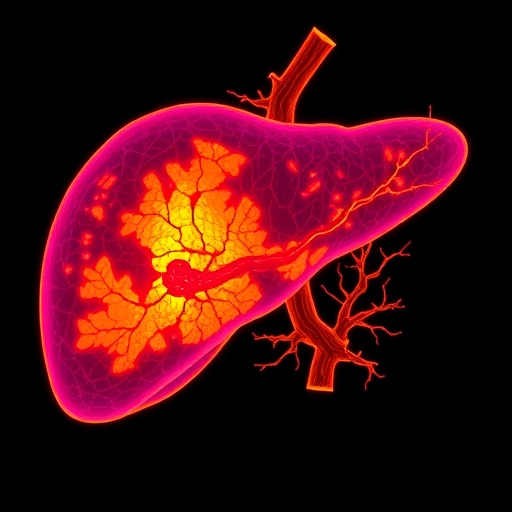
A groundbreaking study from the renowned Mayo Clinic has unveiled a transformative approach to treating HPV-positive oropharyngeal squamous cell carcinoma (HPV+OPSCC), heralding a new era in cancer therapy. This research demonstrates that a significantly shortened and less intense regimen of radiation combined with chemotherapy, administered following minimally invasive surgery, can dramatically reduce treatment-related toxicities without compromising efficacy. Published in the prestigious journal The Lancet Oncology, the findings signal a pivotal moment for patients battling this form of throat cancer.
Conventionally, patients diagnosed with HPV-related oropharyngeal cancer undergo an arduous seven-week course of daily radiation and chemotherapy, or alternatively, surgery followed by six weeks of aggressive adjuvant therapy. While these approaches have been successful in controlling the disease, they often impose a heavy burden of debilitating side effects. Among these are osteoradionecrosis (jawbone failure), xerostomia (dry mouth), taste alterations, and significant dysphagia (difficulty swallowing). Such toxicities detrimentally affect quality of life, especially considering the relatively young demographic commonly affected—patients typically in their 40s and 50s.
Lead investigator Dr. Daniel Ma, a head and neck radiation oncologist at Mayo Clinic Comprehensive Cancer Center, underscores the significance of this advancement. “We’ve achieved a major milestone in oncology by reducing the long-term adverse effects associated with standard treatments, while maintaining the high cure rates that patients depend on,” he explained. This balancing act between treatment intensity and patient quality of life has long been a challenge, but the Mayo Clinic team’s innovative strategy appears to solve it.
The study employed a randomized phase 3 clinical design, enrolling 228 patients treated across Mayo Clinic’s Minnesota and Arizona sites. These participants were stratified into groups receiving either the traditional comprehensive adjuvant therapy or a novel ‘de-escalated’ treatment regimen. This latter approach involved minimally invasive transoral surgery followed by what is termed the de-escalated adjuvant radiotherapy regimen (DART). DART significantly reduces radiation exposure to approximately half the conventional dose and cuts chemotherapy administration to merely one-fifth of the standard amount.
Such rigorous dose reductions raise critical questions about oncologic safety—particularly whether disease control can be maintained with less therapeutic intensity. Reassuringly, the trial’s results indicate that for patients categorized at intermediate risk, disease control metrics were virtually indistinguishable from those achieved with the full standard regimen. This holds promise for reshaping clinical protocols and enabling many patients to experience fewer side effects without sacrificing the chances of long-term remission.
A detailed toxicity analysis revealed profound differences in treatment-related adverse events. The incidence of severe (grade 3 or higher) toxicities and moderate (grade 2) adverse events were dramatically lower among participants treated with the de-escalated radiation and chemotherapy doses. Patients reported improved symptom burden, preserving functions essential to daily life such as speech, taste, and swallowing, and demonstrating quicker recovery trajectories. These outcomes are vital because oral and pharyngeal cancer treatments traditionally compromise these very core functions.
Despite these encouraging findings, the study also delineates clear boundaries for the applicability of the less intensive treatment. High-risk individuals, defined by the presence of five or more involved lymph nodes or disease extension beyond lymph nodes, exhibited somewhat better disease control under the traditional six-week adjuvant protocol. This suggests that while radiation dosage and intensity are crucial, chemotherapy’s role—particularly in managing nodal disease—remains critical for this cohort. Thus, the Mayo Clinic researchers advocate for continued use of full-dose adjuvant therapy in this subgroup.
This landmark trial represents the largest dataset to date examining postsurgical de-escalation in HPV-positive oropharyngeal carcinoma. Such expansive patient numbers lend robustness to the conclusions and empower the oncology community to incorporate these findings into clinical practice guidelines with greater confidence. Moreover, the trial’s open-label design adds to its real-world relevance by simulating standard clinical environments.
Looking forward, the Mayo Clinic team is embarking on next-phase investigations that aim to refine patient selection further. One promising avenue is the integration of molecular biomarkers, such as circulating tumor DNA, to personalize treatment. This precision oncology approach could stratify patients more accurately according to tumor biology and treatment response, ultimately tailoring radiation and chemotherapy doses on an individual basis to maximize both efficacy and tolerability.
Access to the full study, detailing methodology, statistical analyses, and comprehensive author disclosures, is available through The Lancet Oncology. It is a must-read for oncologists and researchers interested in cutting-edge therapeutic strategies for HPV-associated head and neck cancers. The study underscores the paradigm shift from “one-size-fits-all” high-intensity therapy towards personalized, de-escalated regimens that prioritize patient quality of life without compromising disease outcomes.
The implications of this work extend beyond HPV+OPSCC. It exemplifies how advances in minimally invasive surgical techniques combined with tailored adjuvant therapies can revolutionize cancer care. As more is understood about tumor biology and patient-specific factors, similar de-escalation strategies may become feasible across a spectrum of malignancies, minimizing toxicity while preserving curability.
In summary, this Mayo Clinic trial is a significant leap forward in the treatment of HPV-related oropharyngeal cancer. It delivers compelling evidence that reduced radiation and chemotherapy dosages, following minimally invasive surgery, can achieve outcomes comparable to standard protocols with significantly lower toxicity. Ultimately, such innovation embodies the future of oncology—where effective treatment is harmonized with preserving patients’ quality of life, allowing them to return to their daily routines swiftly and with dignity.
Subject of Research: De-escalated adjuvant radiotherapy and chemotherapy in HPV-positive oropharyngeal squamous cell carcinoma following minimally invasive surgery.
Article Title: De-escalated adjuvant radiotherapy versus standard adjuvant treatment for human papillomavirus-associated oropharyngeal squamous cell carcinoma (MC1675): a phase 3, open-label, randomised controlled trial
News Publication Date: 1-Sep-2025
Web References:
Mayo Clinic
The Lancet Oncology Article
Keywords: HPV-positive oropharyngeal cancer, de-escalated radiotherapy, chemotherapy, minimally invasive surgery, treatment toxicity, head and neck cancer, phase 3 clinical trial, DART, cancer de-escalation strategies, quality of life, circulating tumor DNA, oncology innovation
Tags: adjuvant therapy for throat cancerDr. Daniel Ma oncology researchHPV-positive oropharyngeal cancer treatmentHPV+OPSCC therapy advancementsinnovative cancer treatment approachesjournal publication The Lancet OncologyMayo Clinic cancer studyminimizing cancer treatment toxicitiesoropharyngeal squamous cell carcinoma researchQuality of Life in Cancer Patientsshorter radiation chemotherapy regimentransformation in cancer care




